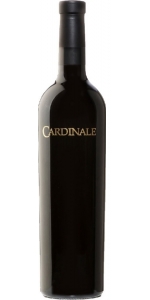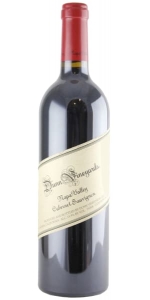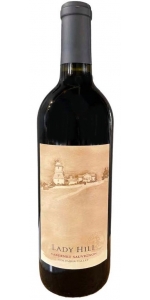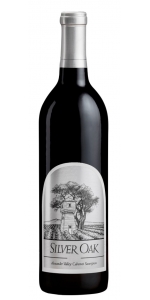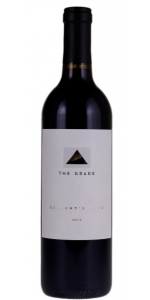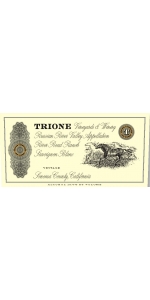Abeja Cabernet Sauvignon Columbia Valley 2019
| Country: | United States |
| Regions: | Washington Washington (Walla Walla) |
| Winery: | Abeja |
| Grape Type: | Cabernet Sauvignon |
| Vintage: | 2019 |
| Bottle Size: | 750 ml |
Cardinale Napa Valley Cabernet Sauvignon is made from 91% Cabernet Sauvignon, 9% Merlot.
Super structured and with minerality to spare, this Cabernet Sauvignon offers a real presence on the palate from start to finish. Generous notes of dark chocolate balance beautifully with a blue and black fruit flavor explosion, finishing with a subtle whisper of rose petal.
Reviews:
- James Suckling 98 Points
-Jeb Dunnuck 98+ Points
Dunn Vineyards Napa Valley Cabernet Sauvignon is made from 100 percent Cabernet.
This Napa Valley wine is a blend of their Howell Mountain fruit and a small quantity of valley floor fruit that they purchase. This valley floor fruit contributes to the wine’s earlier approachability and softer tannic structure.
Review:
I loved the 2019 Cabernet Sauvignon Napa Valley, which I think is a step up over the 2018, although both 2019s show a much more elegant profile. Ripe currants, plums, roasted herbs, violets, and incense notes all shine in this medium to full-bodied, ripe, supple, layered beauty, which has fine tannins and a gorgeous finish. Enjoy bottles any time over the coming 15 years.
-Jeb Dunnuck 94 Points
Lady Hill Cabernet Sauvignon Columbia Valley is made from 100% Cabernet Sauvignon.
Intense hues range from wine purple to sangria showcasing Cabernet Sauvignon’s genetic predisposition to tiny berries packed with color making molecules called anthocyanidins. Chocolate covered cherry and subtle blackberry liqueur combine New World fruit flavors with savory olive tapenade, dried herb de provence and a tinge of minerality found in ancient volcanic soils. The subtle wood impact of 10% new and once filled barrels keeps the focus on fruit and spice, while maintaining the characteristic dusty tannins and lingering finish that Cabernet Sauvignon has become famous for.
Pair with pan roasted veal chops, grilled veggie pizza or a can of Cougar Gold Cheddar.
Silver Oak Alexander Valley Cabernet Sauvignon is made from 95.2% Cabernet Sauvignon, 2.5% Cabernet Franc, 1.9% Merlot, 0.4% Petit Verdot
The 2019 Silver Oak Alexander Valley Cabernet Sauvignon has notes of red cherry, raspberry, blackberry, iris, vanilla and clove. Ruby in color, this elegant wine has great acidity and lift on the mid-palate. Black currant and warm baking spices linger with a deep and fruity finish. It will provide drinking pleasure through 2047 given proper cellaring.
Review:
Aged in 50% new and 50% second-use American Oak from the Duncan family's The Oak cooperage in Higbee, Missouri. Matt Duncan joined me for my tasting, and he says the Petit Verdot in the blend, of which there is 0.4%, is co-fermented with the Cabernet Sauvignon, intended to bring focus to the Cabernet fruit. A compelling, brooding, muscular rendition of Cabernet from Alexander Valley with gorgeous boysenberry notes, black currants, and rose petals laced with vanillin notes and toasty oak. Medium to full-bodied with black currants, ripe blackberry and black cherry notes framed by velvety tannins laced with that irresistible vanillin note. Toasty oak spices lend a hint of sweetness, balanced by grippy acidity. Long and complex, revealing umami, garrigue, and crushed slatestone on the finish. It's a terrific wine from the Alexander Valley.
-Decanter 95 Points
The Grade Cabernet Sauvignon Serpent's Back Napa Valley is made from 100 percent Cabernet Sauvignon.
Review:
The 2019 Cabernet Sauvignon Serpent's Back shows a more aromatic, high-toned side of this site. Bright red/purplish berry fruit, pomegranate, cinnamon and sweet floral accents are all laced together. The Serpent's Back is the most refined of these three Cabernets, but it has plenty of Calistoga punch.
-- Antonio Galloni 95 Points
The Grade Cabernet Sauvignon Serpent's Back Napa Valley is made from 100 percent Cabernet Sauvignon.
Review:
The 2019 Cabernet Sauvignon Serpent's Back shows a more aromatic, high-toned side of this site. Bright red/purplish berry fruit, pomegranate, cinnamon and sweet floral accents are all laced together. The Serpent's Back is the most refined of these three Cabernets, but it has plenty of Calistoga punch.
-- Antonio Galloni 95 Points
Abeja Cabernet Sauvignon Columbia Valley is made from 79% Cabernet Sauvignon, 14% Merlot, 4.5% Cabernet Franc, 2.5% Petit Verdot.
This is the grape that the winery believes will increasingly be recognized as the icon varietal of Washington State and comprises the majority of their production. This Cabernet is stylish, elegant, and impeccably balanced. Abeja accomplishes this by meticulous viticultural management, utilization of a rare sorting system, gentle handling of the fruit and the wine, customized practices for every lot no matter how small, and carefully selected French oak.
This Cabernet Sauvignon is a wonderful combination of sturdy structure and polished finesse. Balanced tannins and acidity provide the structure needed for excellent aging and will reward those who tuck it away for a bit.
The nose leads off with plum, bright blackberry, and dark bing cherries. A touch of dried blueberry rounds out the fruit profile. Floral notes and cocoa, with nuances of cedar and spice, are sprinkled throughout. All of these characters follow through on the palate and, with a pleasant minerality and continuity, weave a tapestry of complexity and youthful exuberance.
The Abeja Winery
The Abeja Winery sits at the base of the Washington Blue Mountains, just east of Walla Walla, on a farm estate over 100 years old.
Ken and Ginger Harrison spent 35 years in Portand, Oregon before their strategic move to Walla Walla. The growing climate was ideal for Cabernet Sauvignon, Ken’s preferred varietal, which made this the perfect location for Abeja Winery. Ken focused on growing and producing, while Ginger operated the Harrison’s Inn.
In 2002, Ken and Ginger met the perfect additions to their Abeja Winery team, John Abbott and Molly Galt. Hailing from the Napa Valley since college, John worked at Pine Ridge and Acacia Winery. He and Molly later began Canoe Ridge Vineyard in Walla Walla. Molly handled all of the marketing and public relations and John was the winemaker for almost ten years.
When choosing a name for their vineyard, they wanted to represent a period of farming that had respect for the environment and close connection to the earth. The word “Abeja” is Spanish for bee. The simplistic nature and beauty of the word complimented their “farm softly” style. The honeybee is the ultimate symbol for their way of life because honeybees are so impacted by how one farms and yet very important to an ample and robust style of agriculture. The Abeja Winery truly strives to make a difference by minimizing impact and nurturing the land. Abeja vineyards are certified sustainable farming by organizations such as LIVE, Salmon Safe, and Vinea.
Some wines from Abeja Winery:
- Abeja, Chardonnay, Washington State
- Abeja, Merlot, Columbia Valley
- Abeja, Syrah, Walla Walla Valley
- Abeja, Cabernet Sauvignon, Columbia Valley
- Abeja Cabernet Sauvignon, Reserve Columbia Valley
Any Abeja wines we have in stock are listed below, if you don’t see the wine you are looking for please don’t hesitate to ask for it.
River Road Ranch is a 115-acre jewel in the heart of the Russian River Valley AVA. Chardonnay vines thrive in well-drained soils, shrouded with fog cooled nights, ideal growing conditions. The grapes for this wine came from two blocks of twelve and fifteen-year-old vines, planted with clones #4, 95, and 2A-Wente.
Bottled poetry is the description of Trione Chardonnay. Burgundian in style of both nose and palate. Rich and inviting, this wine offers a complex mix of toasty baguette, warm melted brie; silky but with the structure demonstrating the aging potential. The wine is tasting great now but will be awesome for the next 5-7 years.
- back
Grand Veneur Chateauneuf-du-Pape Rouge Les Origines is made from 50% Grenache, 30% Mourvedre and 20% Syrah
Matured in vats (grenache) and in oak casks (syrah and mourvèdre).
Deep and brilliant, purple-red colour. An exciting nose with aromas of black fruit (blackcurrant, cherry) spices and vanilla. This great aromatic complexity is found on the palate : the spices and ripe fruit appear with an elegant woodiness and harmonious tannins. The finish has good aromatic length and introduces a touch of liquorice and pepper.
A terrific Châteauneuf du Pape with great concentration and finesse.
Best between 2 and 20 years. Best to decant if young (less than 5 years old).
Soil type Extreme north of Châteauneuf du Pape. This plateau is made with a high quantity of red clay mixed with rocks. This area is considerated to be one of the best to produce rich and powerful red wines. By definition, LES ORIGINES will always deliver a great complexity and ageing potential. Winemaking & ageing Harvest is sorted by hand, destemmed and crushed. Fermentation temperature is controlled at 30°C. Vatting period of 18 to 20 days. Matured in vats (grenache) and in oak casks (syrah and mourvèdre).
Review:
"The 2019 Châteauneuf Du Pape Les Origines is also deep purple-hued and has a classic bouquet of crème de cassis and blackberry fruits intermixed with notions of graphite, chocolate, and spicy wood. Rich, full-bodied, and concentrated, this is beautifully done and despite its more modern elevage, it has plenty of Provençal character and charm."
- Jeb Dunnuck (October 2020), 94-96+ pts
"Warm in feel, with a gush of plum puree and blackberry paste flavors, liberally laced with black licorice and roasted alder notes. A solidly built, modern version, with a nice tug of warm earth on the back end. Best from 2022 through 2034. —J.M."
- Wine Spectator's Insider (June 9th 2021), 93 pts
Far Niente Napa Valley Cabernet Sauvignon is made from 92.3% Cabernet Sauvignon, 6% Malbec, 2% Cabernet Franc, 1.7% Petit Sirah, 1% Petite Verdot.
Beautiful aromas of dark plum, red cherry, licorice and warm baking spices open onto a plush and silky palate layered with plum, spiced cherry and cassis. A classic Napa Valley Cabernet, fine-grained tannins and lively acidity support the wine throughout, while the finish is refined and polished.


